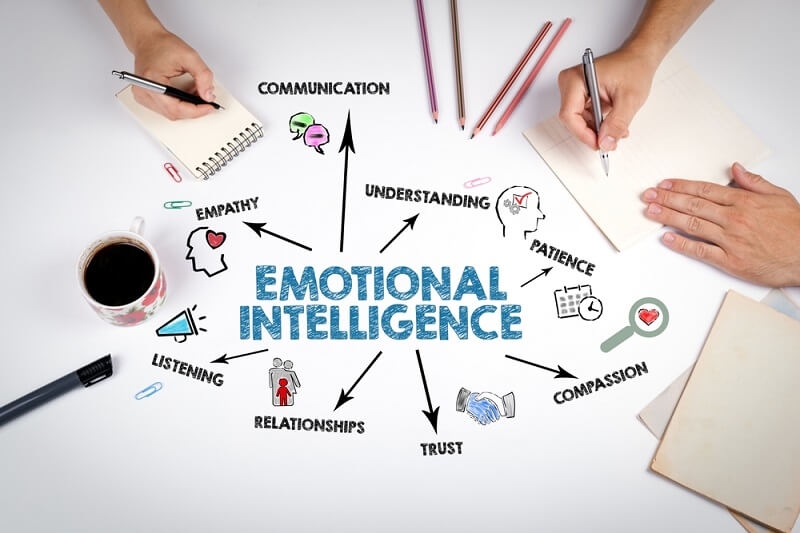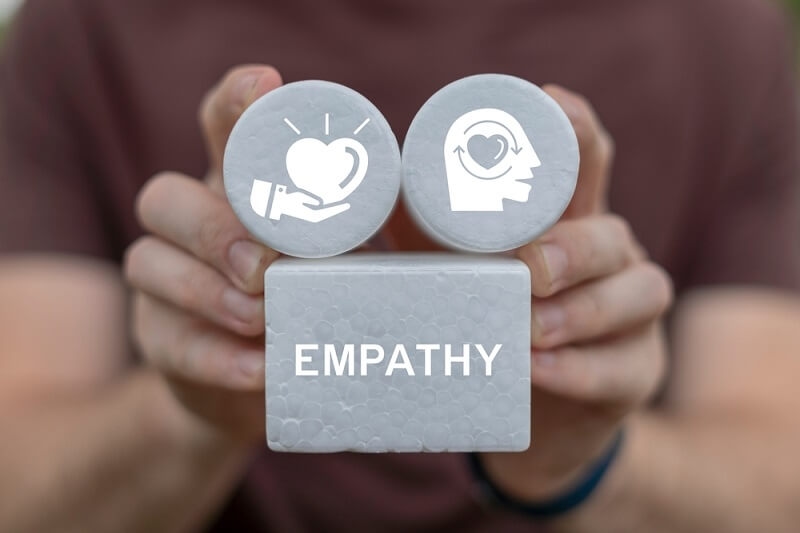
Emotional intelligence is one of the most valuable skills you can develop for long-term personal and professional success. These skills include the ability to recognize, understand, and control your emotions and empathize with others. Once you enhance empathy and self-awareness, you can handle stress, resolve conflicts, and communicate more effectively in relationships.
Whereas IQ is fixed to a great extent, emotional intelligence skills can be acquired, practiced, and perfected. This qualifies them as one of the most significant investments in personal development that you can make.
Emotional intelligence (usually abbreviated as EQ) refers to the skills that enable you to see, understand, and manage emotions in yourself and others. Emotional intelligence skills are more than being aware of your feelings—they include controlling your feelings, listening actively, and replying wisely rather than reacting instinctively.
If you excel in these areas, you create the foundation for more effective relationship communication, stronger workplace relationships, and healthier personal interactions.
Exceptional emotional intelligence skills can positively influence nearly every aspect of your lifestyle. From relationships at home to your ability to emotionally relate to and work with others in a workplace context, your emotional intelligence can transform you into a formidable advantage.
When you practice emotional regulation techniques, you can remain calm and composed in even the most difficult moments. You can step back and analyze the feelings coming up for you in the moment so you can manage your emotions and respond with clarity instead of being ruled by your anger.
As you begin to index more on empathy, you start to see the world from the viewpoints of others. This creates trust and improves communication, resulting in healthy, robust, supportive relationships.
Managers within the workplace have ranked emotional intelligence abilities as important as technical skills.
Leaders with EQ can manage employees, resolve conflicts, and generate loyalty by reconciling emotional needs and organizational objectives.
When you expand self-awareness, you can see your strengths, weaknesses, and triggers. This enables you to curb destructive patterns and establish healthier habits.

Empathy is not up for debate regarding building emotional intelligence skills. Empathy enables you to see things from another's perspective and offer compassion.
When empathy becomes a habitual part of one's behavior, one enhances social skills and develops stronger relationship communication in all aspects of life.
Self-awareness is the most essential component of EQ. Enhancing self-awareness gives you the power to recognize emotions as and when they occur and grasp their influence on your behavior.
Increased awareness will allow you to practice emotional regulation and communication skills more easily.
Learning emotional regulation techniques is crucial to becoming competent in emotional intelligence. Without these techniques, our feelings control us and lead to inappropriate decisions.
Daily practice of these techniques will keep you calm, improve decision-making, and aid in more effective relationship communication.
Enhancing social skills is one of the most powerful by-products of developing emotional intelligence skills. These skills enable you to deal with personal and business networks better.
When you emphasize social skills over time, you will become more approachable, liked, and influential in every aspect of life.
At the very heart of emotional intelligence skills is the ability to communicate better in relationships. Strong communication creates trust; distrust creates misunderstanding and isolation.
Here's why emotional intelligence enhances relationship communication:
These habits can develop personal relationships and foster harmony in work settings when used regularly.
Dedicate Yourself to a Never-Ending Process of Growth. You cannot build emotional intelligence skills overnight; consistent effort is needed.
Contrary to beliefs regarding "soft skills," emotional intelligence skills are part of life skills. By learning to build empathy, improve self-awareness, and develop emotional regulation strategies, you create a more solid platform for improving your social skills and communication in your relationships.
Unlike skills that diminish with time, emotional intelligence strengthens when practiced. In the workplace, relationships, or family, emotional intelligence skills allow you to confidently address issues and cultivate effective relationships for a lifetime towards greater well-being.
This content was created by AI